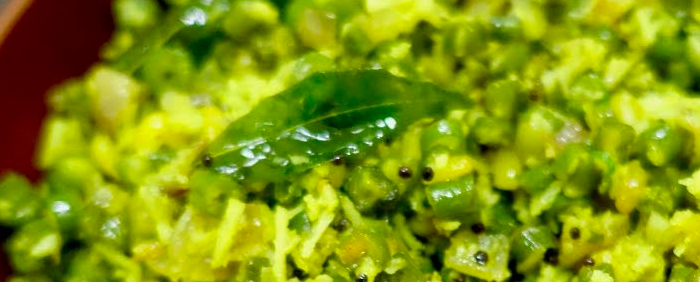
Nutritional value of coconut beans
| Per 100 g | |
| Calories | 136 kcal |
| Carbohydrates | 24.46 g |
| Dietary fiber | 10 g |
| Protein | 9.34 g |
| Fat | 0.46 g |
| Iron | 2.09 mg |
| Zinc | 1.14 mg |
| Copper | 0.231 mg |
| Potassium | 387 mg |
| Food folates | 207 µg |
Source: Health Canada, Canadian Food File, 2009 version
Health effects of coconut beans
In general, legumes contain various elements beneficial to health such as dietary fiber, complex carbohydrates and antioxidants. They also contain several important minerals such as iron, zinc, copper and potassium. In addition to their very low cost, pulses are among the top five foods with the highest micronutrient / price ratio.
Some studies have associated regular consumption of legumes with various health benefits such as better diabetes control, lower risk of cardiovascular disease, better management of body weight, and lower risk of colorectal cancer. These benefits would be partly attributable to various compounds present in legumes such as dietary fiber. American food recommendations also suggest consuming pulses a few times a week, the equivalent of 3 cups. Finally, among the major recommendations of the American Institute for Cancer Research for the prevention of cancer, we advise the population to favor a diet composed mainly of plant foods by including a variety of vegetables and fruits,
Legumes are all good sources of fiber. Dietary fiber, which is found only in plant products, are substances that are not digested by the body. Coconut beans contain 10 g of fiber per 100 g serving and like the majority of legumes, they have a higher proportion of insoluble fiber than soluble fiber. A diet rich in insoluble fiber helps maintain proper bowel function while a diet rich in soluble fiber can help normalize blood cholesterol, glucose and insulin levels. Note that it is recommended to consume 25 g of fiber per day for women from 19 to 50 years old,
Dietary fiber, in combination with other compounds such as amylose (a constituent of starch), allows legumes to be digested more slowly. The ingestion of legumes improves blood sugar control in both diabetics and healthy people, but current scientific data do not allow precise details of the mechanisms involved. Fibers would likely have a role to play, but would not act independently.
In one study, the glycemic index of five legume varieties (mung, chickpea, white bean, black bean and pigeon pea) was assessed. The latter all have a low glycemic index. The authors explain the variation in the glycemic index between legumes, among others, by the type and amount of fiber present and by the proportion of amyloidosis. The real implication of these two compounds remains to be confirmed, however.
Legumes contain molecules with antioxidant properties. These molecules are mainly found in the seed of the plant. Beans also contain volatile substances with certain antioxidant activities.
Coconut beans are great sources of folate. Folate (vitamin B9) is involved in the production of all cells in the body, including red blood cells. This vitamin plays an essential role in the production of genetic material (DNA, RNA), in the functioning of the nervous system and the immune system, as well as in the healing of wounds and wounds. As it is necessary for the production of new cells, adequate consumption is essential during periods of growth and for the development of the fetus.
It should be noted that the iron contained in coconut beans (as in all other legumes) is not absorbed as well by the body as the iron contained in animal foods. However, the absorption of iron from plants is favored if it is consumed with certain nutrients, such as vitamin C.
Use of coconut beans
Fresh beans are bought firm and brittle, without bruising or spots and with a regular shape. Fresh beans are only washed before cooking. They keep for 2 to 3 days in the refrigerator, ideally placing them in a perforated plastic bag. They can also be frozen after being blanched for up to 12 months. Coconut beans are also available in dry form.
Coconut beans are mainly used in stews and cassoulets. They can also be incorporated into soups and salads.
A word from the nutritionist
Coconut beans benefit from being incorporated into your diet every week. Rich in nutrients, they provide protein for far fewer calories and without the bad fats found in meats.